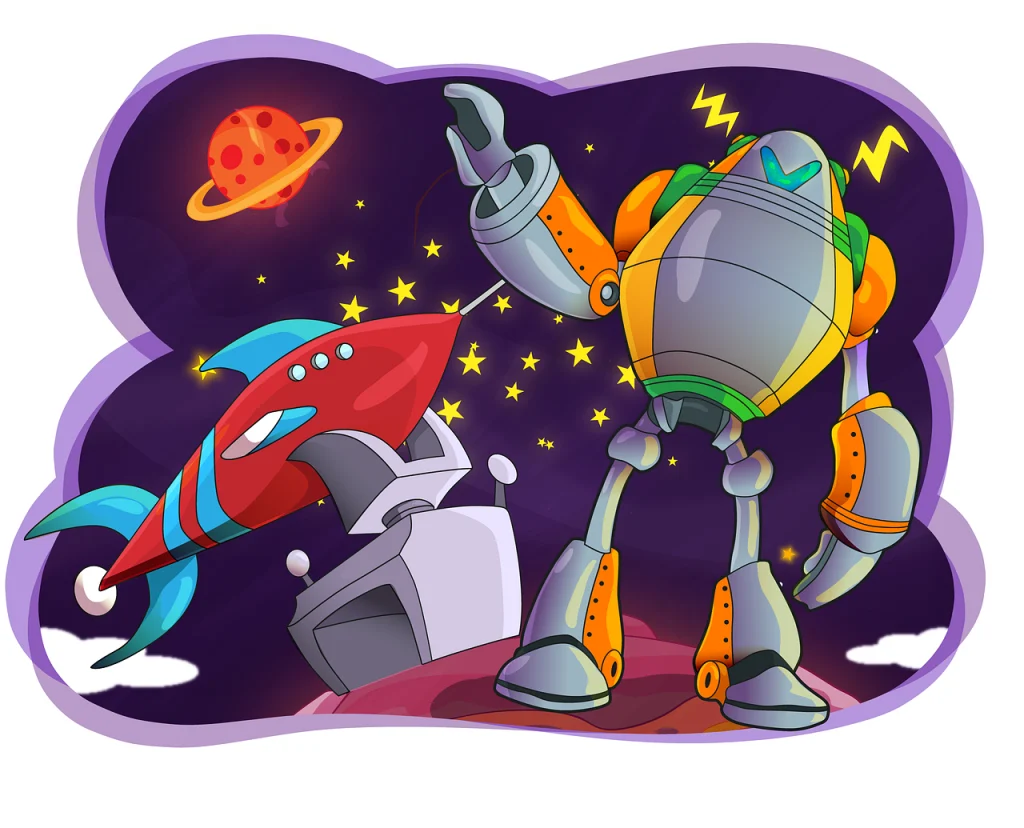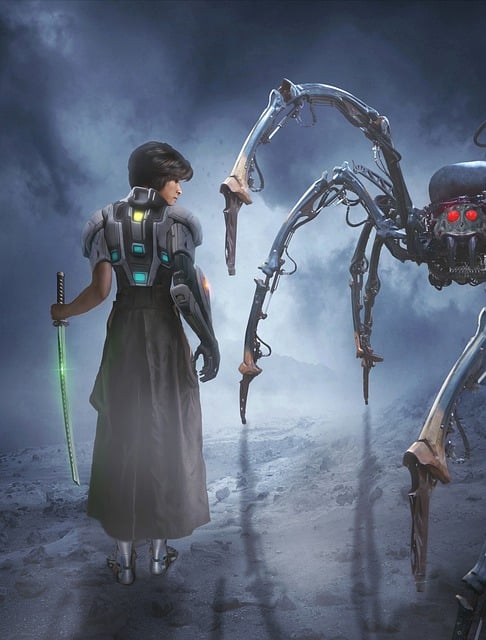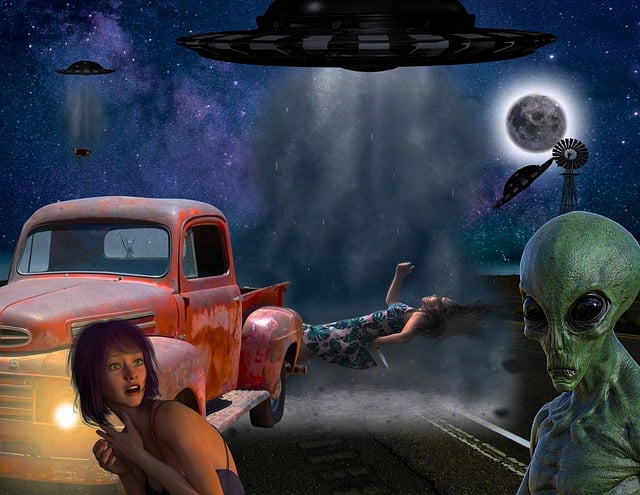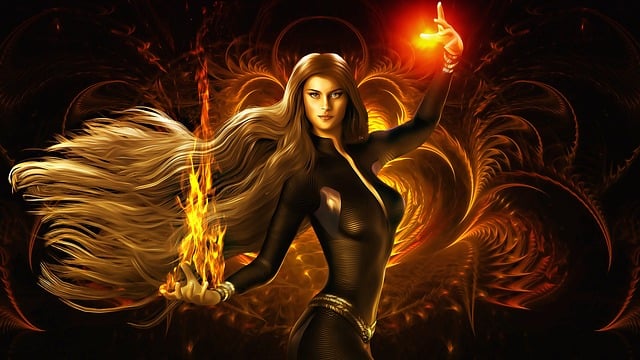Written by JM Strasser

Science Fiction became a genre and a debate on what literature is and what to call the rest of writing in today’s world. I think it is prudent to define literature and then genre, specifically getting into the Science Fiction genre. The status of science fiction, from the start leading up to today, has been a rocky and prosperous one with a dubious reputation. It is helpful for those who partake to understand what has gone before.
Literature–that holds a revered tone. It brings to mind War and Peace and Shakespeare, high-brow stuff. Wikipedia defines literature as “Any collection of written work, but it is also used more narrowly for writings specifically considered an art form, especially prose: fiction, drama, poetry, all including both print and digital writing. In recent centuries, the definition has expanded to include oral literature, also known as orature, much of which has been transcribed. Literature is a method of recording, preserving and transmitting knowledge and entertainment, and can also have a social, psychological, spiritual, or political role.”1
The part about literature “being an art form” holds the crux of issues with science fiction. In many instances, rules are made, gatekeepers are created, and the gatekeepers want control. Science fiction falls into the category of literature as initially defined here, but many have struggled to accept the writing of this type into the fold of literature. Pulp magazines with monsters on the cover seemed frivolous and mostly made for adolescents.
Genre, a subdivision of literature, needs to be defined next. I like how the Oxford Advanced Learner’s Dictionary handles it. “It is a noun that is a particular style of literature, art, film or music that you can recognize because of its special features.”2 SCIFED, a science fiction online magazine, defines further the genre of scifi. “Science fiction is a genre that deals with futuristic concepts such as advanced science and technology. While it is not limited to any one genre, it often includes elements of fantasy and/or dystopian fiction.”3
There has been literature that could be described as scifi from as early as 2nd-century-CE Syrian-born Greek satirist Lucian, who in Trip to the Moon describes sailing to the Moon. In the 17th century, Cyrano de Bergerac wrote of a voyager to the Moon, too, but it was published for him after his death. In general, publishers weren’t ready, but we don’t know about the market; maybe they were. Cyrano did influence subsequent writers, notably Swift’s Gulliver’s Travels and Voltaire’s Micromegas, with inventive monsters and fantastic adventures. In 1771, Louis-Sebastien Mercier’s L’An deux mille quatre cent quarante (Memoirs of the Year Two Thousand Five Hundred) was published and immediately banned in France, fearing it was subversive. It became an international bestseller. Thomas Jefferson and George Washington owned copies.
Science Fiction claimed its title as a genre in the early 20th century. Found in pulp magazines, SciFi often had exciting and salacious illustrations on their covers (standard on pulp magazines in general). The pulps also included “Adventure, Aviation, Crime, Detective, Espionage, Fantasy, Gangster, Horror, Humor, Mystery, Occult, Railroad, Romance, Serie Noire, Spicy/Saucy, Sports, War, Weird Menace and Western”6 and they filled the newsstands. This led to a general disregard for pulps, but they started the Golden Age of science fiction.
One of the primary players influencing scifi was John W. Campbell, Jr. Mr. Campbell became editor of Astounding magazine in 1938. He set out to reach a more mature and sophisticated market by adding additional non-fiction articles and, I suspect, paying more to the authors. He required his stable of writers to be familiar with science and people, not common in the established pulp authors. Campbell quickly had an outstanding stable of writers, including L. Ron Hubbard, Clifford Simack, Jack Williamson, L. Sprague de Camp, Henry Kuttner, C. L. Moore, Lester del Rey, Theodore Sturgeon, Isaac Asimov, A. E. van Vogt (who wrote my very first SciFi novel), and my favorite author Robert A. Heinlein.
Today scifi is very popular in print, movies, TV, and streaming. It is still regarded poorly, but I believe this is from a vocal minority because of its immense popularity. When I first heard a criticism of J. K. Rowling’s Harry Potter and read the first page, I was surprised. I thought it was magnificent; what were they talking about? My father read stories similar to this new adventure to my sisters and me, like The Wizard of Oz, Winnie the Pooh, and Charlotte’s Web, which started my lifelong love of literature. It was an easy leap to science fiction, especially since my dad was a huge fan.
As I branch out to the current scifi, I am hesitant. In the past, stories sold because of their content, but as our societies change, ideas are forced into many writings but add nothing to the plot. The problem with current trends and ideas is that the mere mention is enough for the author and some readers (at least at first). There is great pride when subjects of race come into scifi stories as if it is a new idea. Like the old saying about the younger generation believing they invented sex. Really?

My first novel was Slan. It was about racial discrimination, and was written in 1940 serialized in Astounding. Others ridicule scifi that these ideas like racism or sex are cowardly discussed with characters other than humans. I feel one of the best parts about the genre of scifi is the ability to try ideas in a “safe” environment. I can even handle some horror, which I thought I never could.
For me, the central part of any literature is the logical and interesting development of the story, the three-dimensionality and growth of the characters, and the setting of the story. That seems to be a given, but I would have to agree with the gatekeepers on this. Whether it’s a spaceship or a sailing ship, these elements must be there, or I am not interested. Unfortunately, the “literature” snobbery doesn’t want spaceships.
In my journey to dive into scifi, I have run into a snobbery that surprised me. The idea that only the “good” literature, or indeed only “literature,” would be allowed in a book club was quite a snub. My father took this type of criticism all his life. He was a very smart man, an engineer who loved scifi. I shared that love of the possibilities of science and technology, but others felt the genre was for teenage boys.

It is true many teenage boys do love scifi; the scantily clad women, monsters, and rocket ships are pretty exciting at that age, but it is so much more, so much to explore. I have spent my time in used book stores standing next to these adolescent upstarts, searching for the next great scifi book.
George R.R. Martin once said “There’s a lot of prejudice against science fiction, particularly against genre fiction. And it’s still there but it’s not nearly what it was. I think these things are breaking down. Literary fiction in its present form is a genre itself and we should recognize it as that. The real test is what books are going to survive. Tolkien has certainly survived. All you can do is write the best story you can and put it in the hands of posterity. The fact that people are arguing about my books is a sign that I take very well. A writer’s real enemy is obscurity.”7
I, too, had an experience where a debate flared up in the lunch room of an online magazine. They argued about my submitted essay, (Are We On Track) comparing the development of civilization on Earth to an alien academic’s analysis of what happened throughout the galaxy. The idea is there would be parallels. They didn’t buy my submission, but I was flattered.
At this point, I write only for myself. I need to keep my brain active in a pleasing environment for what I am writing and where I write. You might be surprised how difficult that can be. I have carved out a space to function and am enjoying it, at least so far.

Outright ridicule is indeed common, both on my level and accomplished writers. “When I was a young writer if you went to a party and told somebody you were a science-fiction writer you would be insulted. They would call you Flash Gordon all evening, or Buck Rogers.” ― Ray Bradbury
When you become a writer, you will encounter many unfair ideas. It is true, probably in every profession. You must write because you love it, not because you want everyone to laude your work. Thankfully, the internet can now reach around the globe and find your readers. In the end, that’s all you need. Unless you want to feed yourself, and heaven help you, feed your family.

But in the end, please remember this great pearl of wisdom. “Here’s a quick rule of thumb; Don’t annoy science fiction writers. These are people who destroy entire planets before lunch. Think of what they’ll do to you.” ― John Scalzi
©JM Strasser October 30, 2023 All Rights Reserved
Sources
1. https://en.wikipedia.org/wiki/Literature
2. https://www.oxfordlearnersdictionaries.com/definition/american_english/genre
3. https://www.scified.com/news/how-science-fiction-became-the-new-mainstream-a-look-into-its-rise- in-popularity
4. https://link.springer.com/chapter/10.1007/978-3-319-61685-8_2
5. https://www.britannica.com/art/science-fiction
6. https://www.screamingeyepress.com/pulps/pulp-magazines/genres/
7. https://www.tolkiensociety.org/2014/08/george-r-r-martin-i-rev
Pictures
- 2., 3., 4., and 5. https://pixabay.com/accounts/collections/19061177/ Free Scifi pictures
©2023 jmstrasser.com All rights reserved